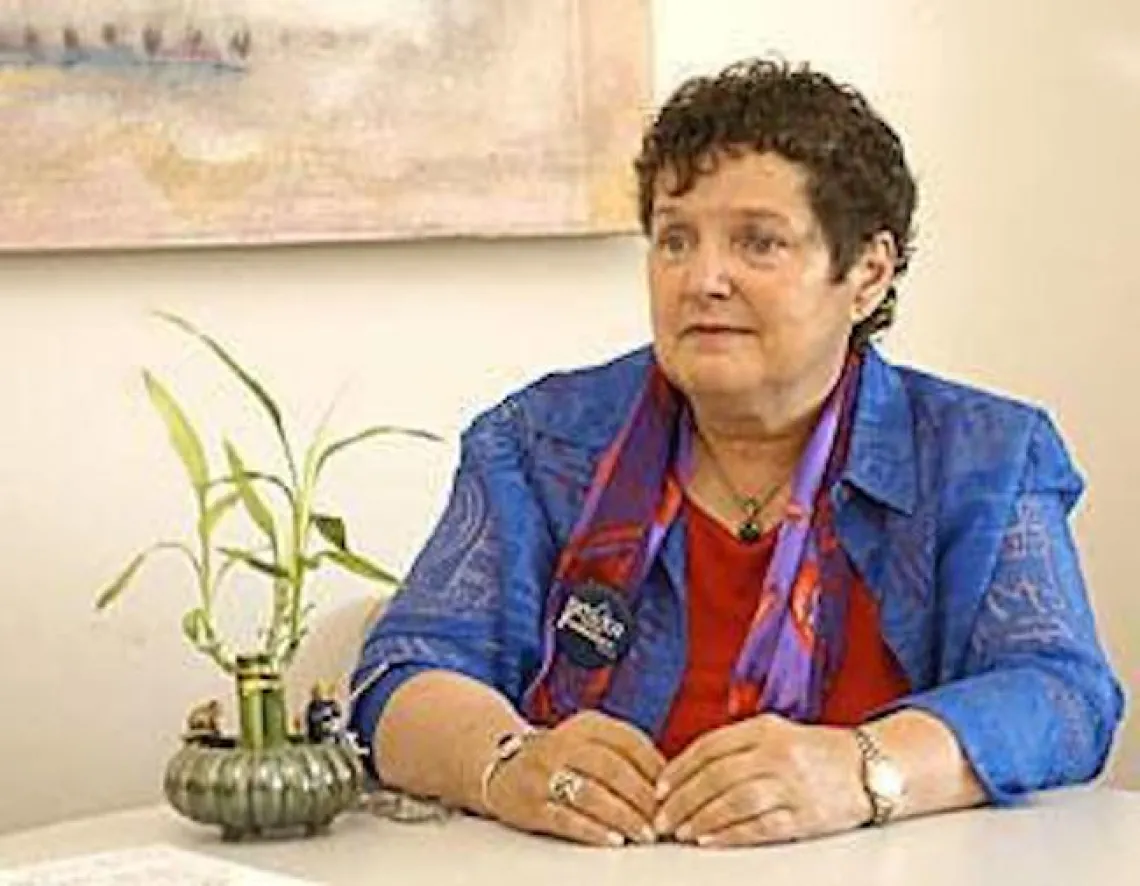Sharon Kha: Living with Parkinson's OpEd

Counting one’s blessings is a highly overrated activity when one has an incurable disease like Parkinson’s. It is so much easier to count the things we’ve lost: We’ve lost our balance, our strength, our voice, our independence and our mobility. New losses accumulate like flakes of snow that drift across the landscape of our future. I’ve been living with those losses for nearly 20 years.
Parkinson’s disease is a progressive, incurable disease that attacks the body’s ability to move. April 11 is Global Parkinson’s Awareness Day, a good day to reflect on the impact Parkinson’s has had on my life. To my surprise, it isn’t all bad.
There are many ways in which it has become high on my list of blessings. It helped me get my priorities straight — I don’t waste my energy on petty squabbles and I don’t procrastinate — well, not as much. I appreciate my friends and family more. Having an incurable disease illuminates the widespread kindness human beings show one another. I didn’t always know this. There were times in my life when I was suspicious and cynical. Living with Parkinson’s gave me a new perspective.
I’ve had Parkinson’s for a very long time. It is a devastating disease to be sure, and there is no cure. It is also a slow-moving disease in which new symptoms add up over time, and the old ones don’t go away. If I had broken a leg, friends would have sent get-well cards and come to visit and brought gifts. With Parkinson’s, the symptoms add up slowly, and no one sends a “Sorry You Have Parkinson’s” card.
Even family members may not recognize the change until a visiting relative sees a difference in walking or lack of facial expression. Gradually, the family takes on what used to be all the housekeeping responsibilities — cooking, cleaning, driving and more, and they do it without expectation that you will be able to take care of them in the future. There is an unspoken contract among humans of every culture saying that healthy people take care of the sick.
Once it became obvious that I had Parkinson’s, however, it wasn’t just family and friends who treated me with compassion. People I had never met reached out. They held doors open for me, offered me their arm when I was walking across rough terrain, and carried trays of food for me in a buffet line. If I walk in my neighborhood and stop to rest, people ask if I’m OK. Once I was crossing a busy intersection when I fell face down into the right turn lane. Two young men stopped their car, jumped out, helped me up and offered to take me home.
When I go to movies or basketball games, people step aside and urge me to go to the front of the line. Once I had stumbled and was clinging to my walker to keep from falling when out of nowhere, a car came around the corner, screeched to a halt and a man jumped out. He said, “I’ve got you.” He reached me before I lost my grip on the walker and went down with a sickening thud—it was exactly that scenario that caused me to break my shoulder three years ago.
Each act of caring is like a fragile silken thread, not significant in and of itself. But then a second thread clings to the first and a third and fourth until the threads of kindness become a cocoon that cushions the rough edges of the disease. When the threads have woven themselves into the fabric of our society, we call it “common courtesy.”
In this world of mass shootings and insults and hate speech and fear, it is reassuring to see total strangers reaching out to one another with kindness.
So, on Parkinson’s Awareness Day, don’t underestimate or trivialize those small gestures that are evidence of your care and concern. Reach out!
Original Story Link:

